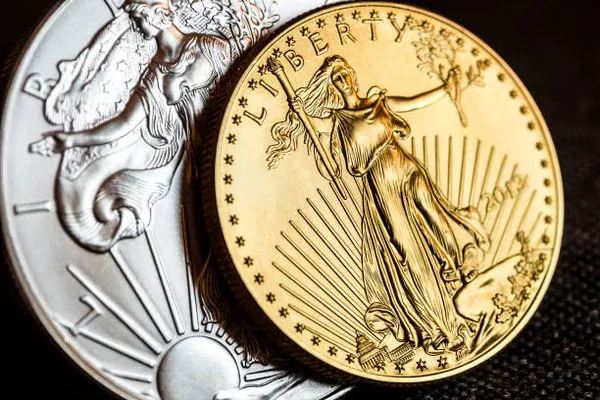White gold has gained immense popularity in the jewelry market, celebrated for its sleek appearance and durability. However, with the rise of counterfeit products and alternative alloys, it is essential to understand how to differentiate real white gold from imitations. This article will guide you through the characteristics, testing methods, and tips for recognizing authentic white gold, ensuring that you make informed decisions in your jewelry purchases.
1. What Is White Gold?
White gold is an alloy created by combining pure gold with other metals to achieve its distinctive silvery-white hue. The most common metals used in this alloying process are:
Nickel: Adds strength and durability, often found in lower-karat white gold.
Palladium: A more expensive alternative to nickel, it provides a lustrous finish and is often used in higher-karat white gold.
Silver: Sometimes added to enhance the alloy’s color and properties.
The Alloys of White Gold
The purity of white gold is measured in karats, with common options including:
10K White Gold: Contains 41.7% pure gold; it is the least expensive and contains more alloyed metals.
14K White Gold: Comprises 58.3% pure gold, offering a balance of quality and affordability.
18K White Gold: Consists of 75% pure gold, providing the most value and quality, with a richer gold color.
2. Characteristics of Real White Gold
Understanding the characteristics of authentic white gold can help you recognize it in jewelry.
Color and Finish
Luster: Real white gold exhibits a bright, shiny appearance, often enhanced by rhodium plating. The finish can range from high-polish to matte.
Color Variations: Genuine white gold may have slight variations in color depending on the alloy mixture, with some pieces appearing slightly warmer or cooler.
Weight and Density
Heft: Real white gold is denser and heavier than many other metals. If the piece feels lighter than expected, it may not be genuine.
Density Test: The density of gold is approximately 19.3 g/cm³. You can calculate the density of your piece by measuring its weight and volume to verify its authenticity.
Markings and Hallmarks
Karat Stamp: Look for markings like “10K,” “14K,” or “18K” stamped on the inner band or clasp, indicating the gold content.
Manufacturer’s Mark: Reputable jewelers often include their unique symbols, which can verify authenticity.
See Also: What Is 18K Gold Worth? A Comprehensive Guide
3. Testing Methods for Authenticating White Gold
There are various methods to help you determine whether your white gold is genuine.
Visual Inspection
Check for Rhodium Plating: Many white gold pieces are rhodium plated for added shine and protection. If the rhodium wears off, the underlying gold may appear yellowish, indicating that the piece is likely real white gold.
Surface Scratches: Inspect for scratches or wear. Genuine white gold may show wear over time but should not flake or peel.
Acid Test
Gold Testing Kit: A gold testing kit typically includes several acids and a testing stone. Scratch the jewelry on the stone, then apply the acid. The color reaction will indicate the purity of the gold. Real gold will not react with nitric acid.
Magnet Test
Magnetic Properties: Gold is not magnetic. Use a magnet to test the jewelry; if it sticks, it likely contains other metals, suggesting it is not pure gold.
Density Test
Water Displacement: Weigh the jewelry on a scale, then submerge it in water to measure its volume. Calculate the density to compare it with the known density of gold.
Professional Appraisal
Gemologist Assessment: Consider taking your jewelry to a certified gemologist or appraiser for professional evaluation. They can use advanced testing techniques to confirm authenticity.
4. Understanding Rhodium Plating
Rhodium plating is a standard practice in white gold jewelry, adding a bright finish and protecting against scratches and tarnishing.
Benefits of Rhodium Plating
Enhanced Appearance: It gives white gold a shiny, reflective surface, making it look more appealing.
Durability: Rhodium offers a protective layer against wear and tarnishing.
Maintenance of Rhodium-Plated Jewelry
Replating: Over time, rhodium plating can wear off, requiring reapplication to restore shine.
Care Tips: Clean rhodium-plated jewelry with a soft cloth and avoid harsh chemicals to prolong its life.
5. Buying Tips for Authentic White Gold Jewelry
When purchasing white gold, consider the following tips to ensure you acquire genuine pieces:
Choose Reputable Jewelers
Established Retailers: Buy from well-known jewelry stores or reputable online retailers with positive reviews and certifications.
Look for Certifications
Gemological Institute Certification: Seek certification from recognized organizations that guarantee the authenticity and quality of the jewelry.
Read Return Policies
Return and Exchange Options: Ensure the retailer has a clear return policy to allow for inspection and verification of authenticity.
6. Common Myths About White Gold
Addressing misconceptions can help you better understand white gold.
White Gold vs. Platinum
Differences in Composition: While both are precious metals, white gold is an alloy, whereas platinum is a naturally occurring metal and is denser and more durable.
Skin Reactions
Nickel Sensitivity: Some people may experience allergic reactions to nickel in white gold. Opt for nickel-free alternatives if you have sensitivities.
7. Conclusion
Determining whether white gold is real involves understanding its composition, characteristics, and various testing methods. By familiarizing yourself with hallmark stamps, conducting visual inspections, and utilizing testing techniques, you can confidently identify authentic white gold. Whether purchasing a new piece or evaluating an existing one, this comprehensive guide equips you with the knowledge to appreciate the beauty and authenticity of white gold jewelry.
By utilizing this guide, you can navigate the world of white gold with confidence and ensure that you are making wise choices when investing in your jewelry collection.
You Might Be Interested In
- Which Gold Coin is Best for Investment?
- The Ultimate Guide to Choosing the Best Karat Gold for Rings
- Choosing Wisely: Which Gold is Good for Investment?


